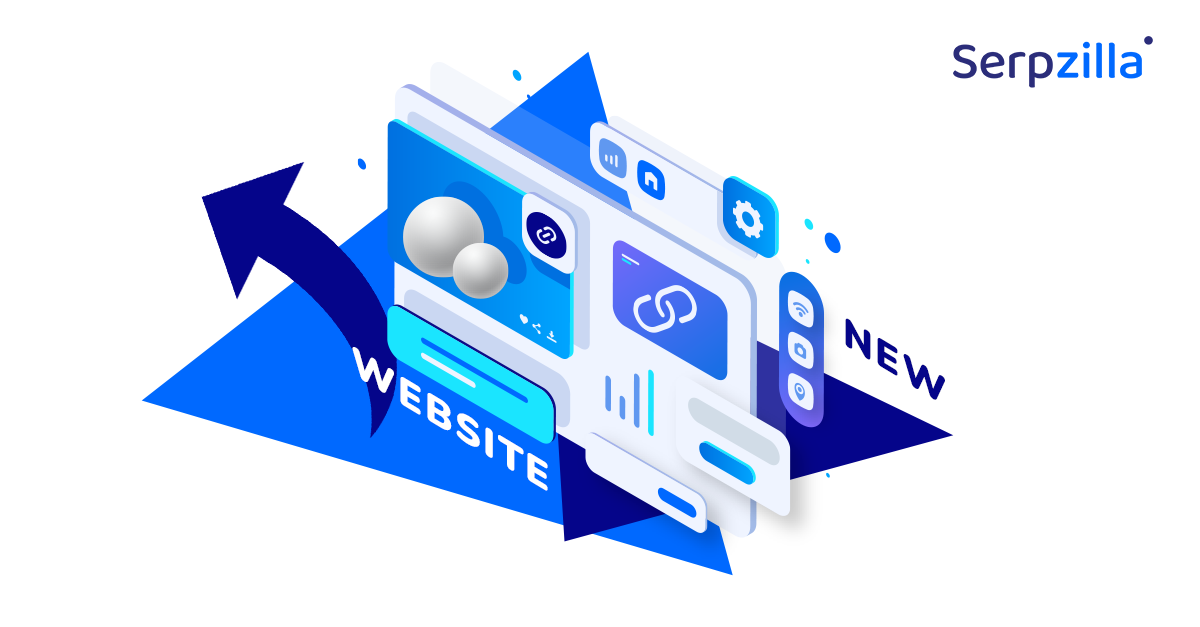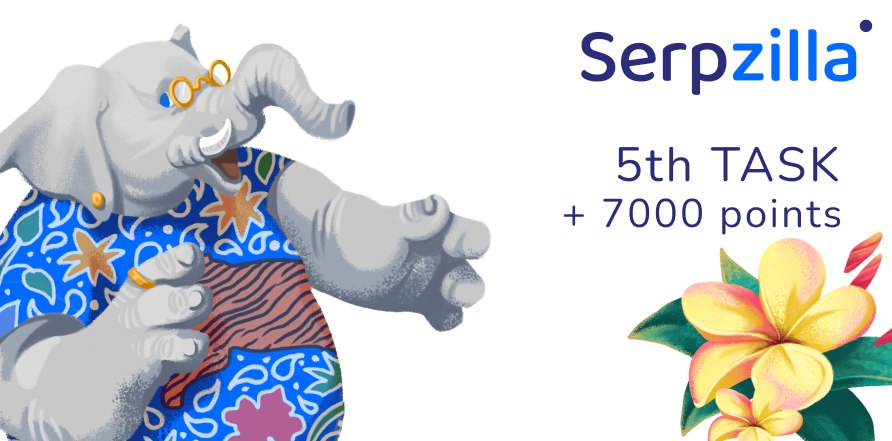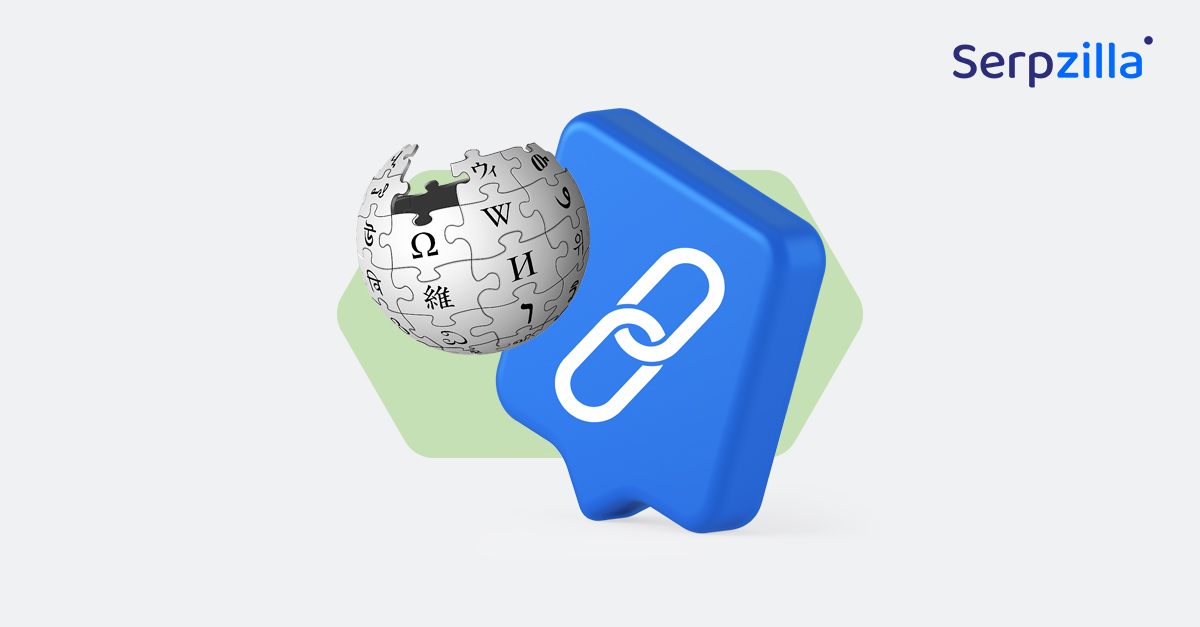As we write this blog, the entire world is talking about Deadpool and Wolverine. The movie finds mentions across social media platforms, PR publications, forum threads, blogs, vlogs, podcasts, websites, and endless online channels.

This is the most apt example of a brand mention. It refers to any online references to a business, product, or brand. While the layman term is simple, when we talk about brand mention for SEO in particular, it refers to keywords containing the brand name but not the hyperlink to the website.
This is exactly what happened on Sherwood, where they did write about the movie but didn’t provide a backlink.
Understanding Brand Mention Link Building
Did you ever wonder how some brand names seem to always appear at the top of search engine results? A significant part of their success lies in effective brand mention link backlinks.
Take the example of Chase Sapphire Reserve.
The credit card brand finds several non-sponsored mentions simply because they’re good and they’ve built a significant reputation through their SEO strategies among others. Travelers are talking about the card on their blogs and also on reputable platforms like Tripadvisor and forums such as Reddit.
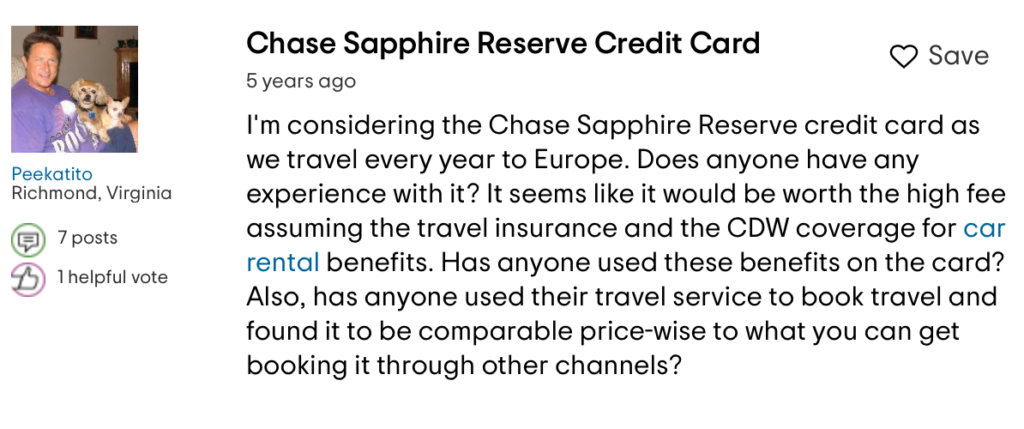
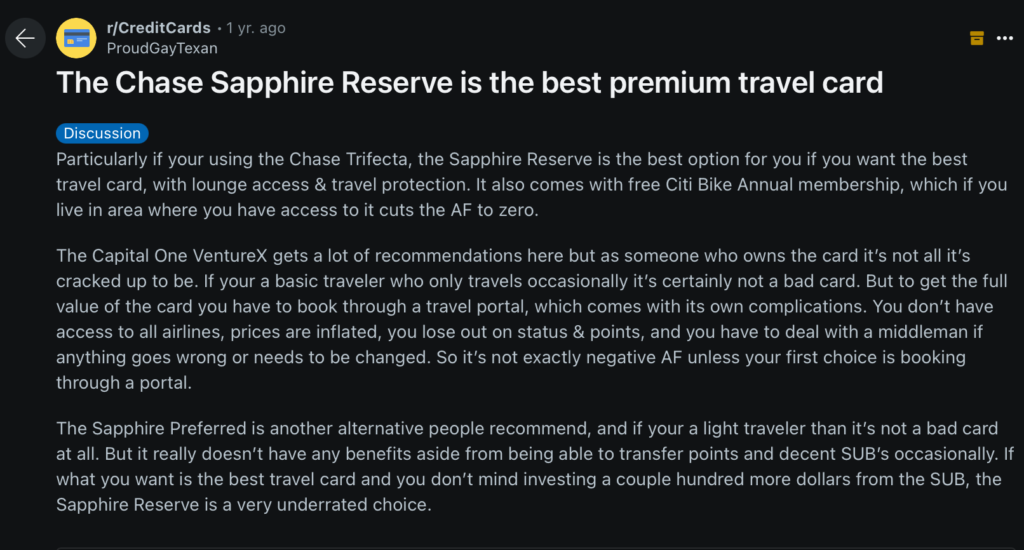
What is Brand Mention Link Building?
It’s essentially the process of identifying online mentions of your brand and turning them into valuable backlinks. When someone talks about your brand on a website or social media platform, it’s a mention. By reaching out to the author or website owner, you can request a link back to your website. This not only shows search engines that your brand is relevant and trustworthy but also directs more traffic to your site.
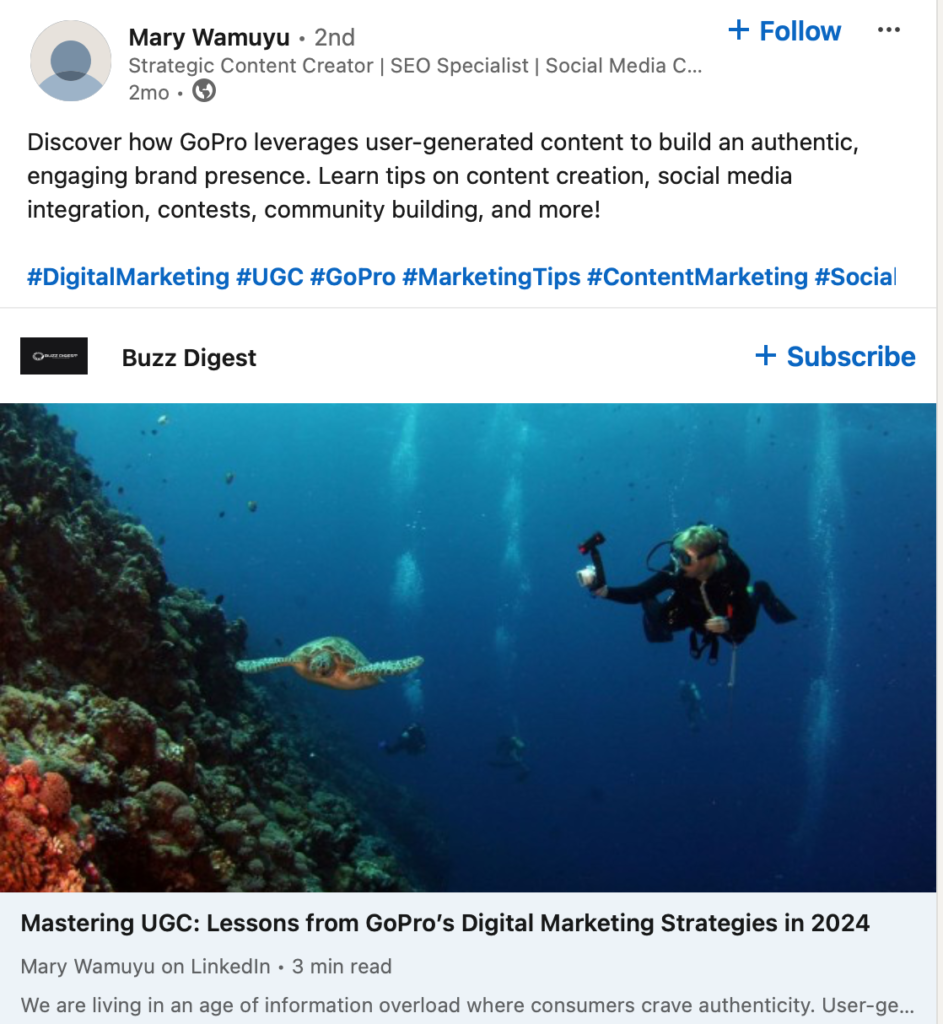
Take the instance of this post on LinkedIn that mentions GoPro via hashtag and an article. However, the post doesn’t really have the link back to the main GoPro website or product page. In scenarios like this, the best way forward is to make sure that the webmaster or SEO professional reaches out to the relevant people behind the posts and get a backlink.
There are many solid reasons for this.
Why Are Brand Mentions Important For SEO?
Search engines like Google consider backlinks as votes of confidence. When other reputable websites link to yours, it signals that your content is valuable and informative. This can significantly boost your search engine rankings, making your website more visible to potential customers.
Google has been using links to determine the authority of websites since its early days. The idea that webpages can “vote” for other pages by linking to them is the foundation of the PageRank algorithm. However, this led to the rise of manipulative link tactics. Google responded with the Penguin update and manual penalties, but link schemes continued to evolve.
Publishers started to associate links with the risk of being penalized. Many of them, including Wikipedia, The Next Web,Entrepreneur, Forbes, and others, now simply nofollow outgoing links. They don’t want to be seen as endorsing every site they link to or worrying about how the algorithm might interpret it. While you can’t blame them for playing it safe, the system loses its effectiveness when the biggest players stop casting their votes.
The internet is changing. PageRank’s view of the web as a graph of pages connected by hyperlinks is becoming outdated.The web is now a complex ecosystem where relationships can be expressed in countless ways. Unlinked brand mentions and the sentiment behind them might be the perfect replacement for a site authority signal.
However, it’s important to note that:
- Search engine algorithms are constantly evolving. While unlinked brand mentions may be a valuable signal, their exact impact on rankings can vary.
- Quality and relevance still matter. Unlinked mentions from high-quality, authoritative sources are likely to have a more significant impact than those from less reputable websites.
How Does Brand Mention SEO Improve Visibility and Authority?
- Increased Visibility: Backlinks help your website appear higher in search engine results, making it more likely to be seen by your target audience.
- Enhanced Authority: When other websites link to your content, it establishes your website as a reliable source of information. This can improve your website’s authority and credibility.

Here’s a walkthrough of how you too can get started with brand mention link building for any brand.
How To Find Brand Mentions
Imagine trying to keep track of every single conversation about your brand online. It’s like trying to listen to a million people talking at once! That’s where brand mention monitoring tools come in.
These tools are like your personal assistants, helping you stay on top of what people are saying about your brand. They can listen to social media, news articles, blogs, and even online forums.
Let’s look at some of these tools and how they can come in handy.
What Are Some Useful Tools For Brand Mentions?
Google Alerts

Imagine having a personal assistant who scours the internet 24/7, looking for any mention of your brand. That’s essentially what Google Alerts does. It’s a free tool that keeps you in the loop whenever someone talks about your company, products, or industry online.
Setting Up Your Watch
To start, head over to Google Alerts and tell it what to keep an eye on. You can enter your brand name, specific products,or even industry buzzwords. The more keywords you add, the wider your net will be.
Customizing Your Alert
Once you’ve got your keywords, you can tailor your alert. Want to be notified daily or weekly? Choose your frequency.Only interested in news articles? You can specify that too. Google will then send you a friendly email whenever it finds a new mention.
Sorting Through the Noise
Google Alerts will flood your inbox with links, but not every mention is a gem. Take a moment to sift through these links.Focus on mentions from reputable websites or sources that are relevant to your industry. These are the ones that could potentially lead to valuable connections or even backlinks.
Brand24
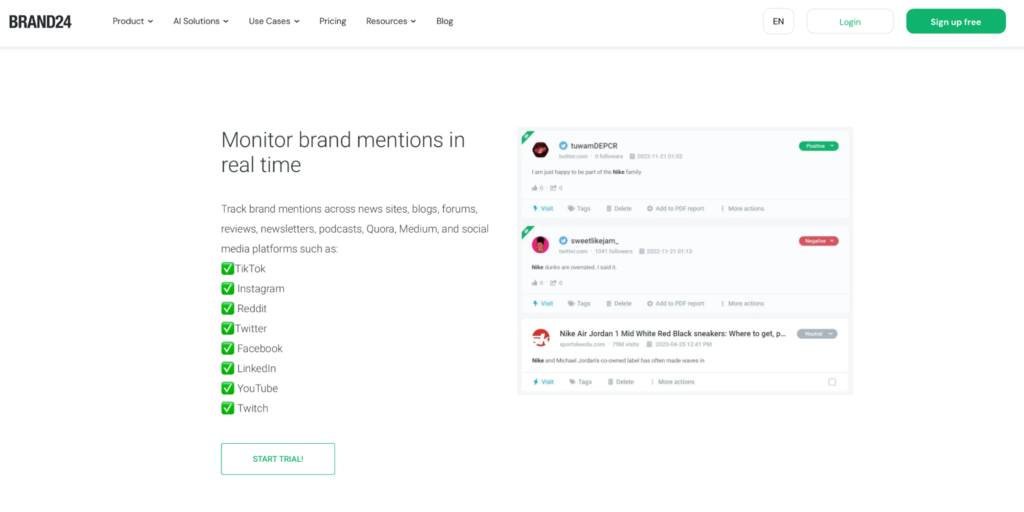
Brand24 is a comprehensive brand monitoring tool that offers a wide range of features to help you track mentions of your brand across the web. Here’s how it assists in noticing brand mentions:
- Real-time monitoring: Brand24 provides real-time tracking of brand mentions, ensuring you’re always up-to-date with the latest conversations. This allows you to respond promptly to customer inquiries, address negative sentiment, and capitalize on positive mentions.
- Social media integration: The tool integrates with various social media platforms, including Facebook, Twitter,Instagram, and LinkedIn. This enables you to monitor mentions on these platforms, identify influencers, and engage with your audience directly.
- Sentiment analysis: Brand24 offers advanced sentiment analysis capabilities, helping you understand the overall sentiment surrounding your brand. By tracking positive, negative, and neutral mentions, you can gauge customer satisfaction, identify areas for improvement, and measure the impact of your marketing efforts.
- Competitive analysis: Brand24 allows you to track mentions of your competitors, providing valuable insights into their market share, brand perception, and marketing strategies. This information can help you identify opportunities to differentiate your brand and improve your competitive positioning.
- Customizable alerts: You can set up custom alerts to receive notifications for specific keywords, phrases, or locations. This ensures you don’t miss any important mentions related to your brand, products, or industry.
Ahrefs Alerts

Ahrefs is primarily known for its backlink analysis capabilities, but it also offers features to help you track brand mentions. Here’s how Ahrefs can assist in this regard:
- Backlink monitoring: While Ahrefs is primarily focused on backlinks, it can indirectly help you track brand mentions. By monitoring backlinks to your website, you can identify websites that are linking to your content or mentioning your brand. This can provide valuable insights into your online visibility and reputation.
- Keyword research: Ahrefs’ keyword research tools can help you identify relevant keywords and phrases related to your brand. By tracking mentions of these keywords, you can gain a better understanding of how your brand is being discussed online.
Competitor analysis: Ahrefs allows you to analyze your competitors’ backlinks and online presence. This can help you identify websites that are mentioning your competitors but not your brand, providing potential opportunities for outreach.
Mention
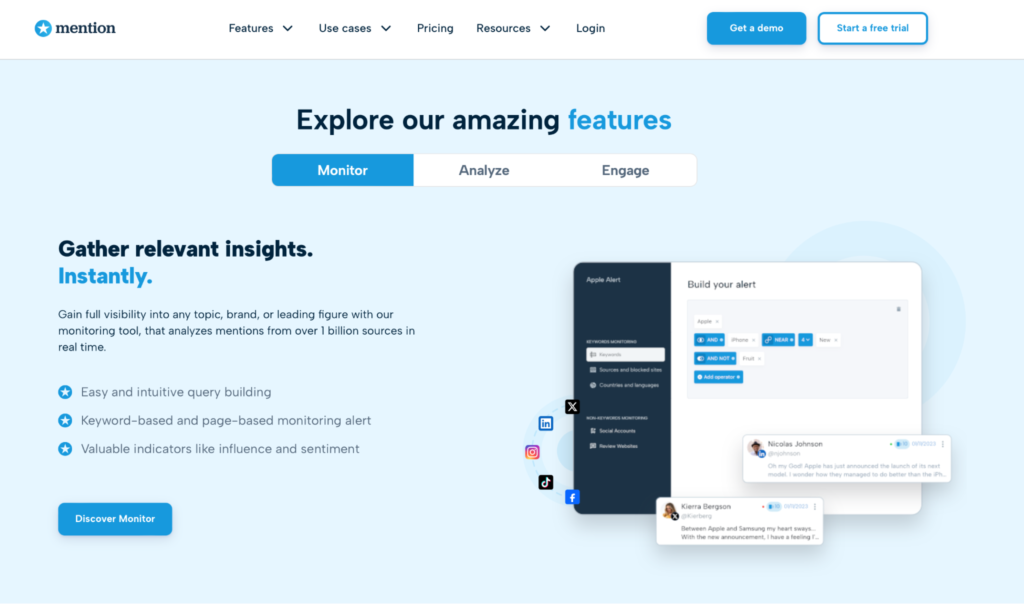
rack brand mentions across various online channels. Here’s how it assists in noticing brand mentions:
- Comprehensive coverage: Mention monitors a vast number of online sources, including news websites, blogs,social media platforms, forums, and online communities. This ensures you don’t miss any mentions of your brand,regardless of where they occur.
- Advanced search filters: Mention provides advanced search filters that allow you to refine your searches based on criteria such as language, location, sentiment, and publication type. This helps you focus on the most relevant mentions and identify key trends.
- Influencer identification: Mention helps you identify influential individuals and publications that are discussing your brand. This information can be valuable for building relationships, securing media coverage, and increasing brand awareness.
- Social media analytics: Mention provides detailed analytics on your social media mentions, including engagement rates, follower growth, and sentiment analysis. This information can help you measure the effectiveness of your social media campaigns and identify areas for improvement.
SEMrush
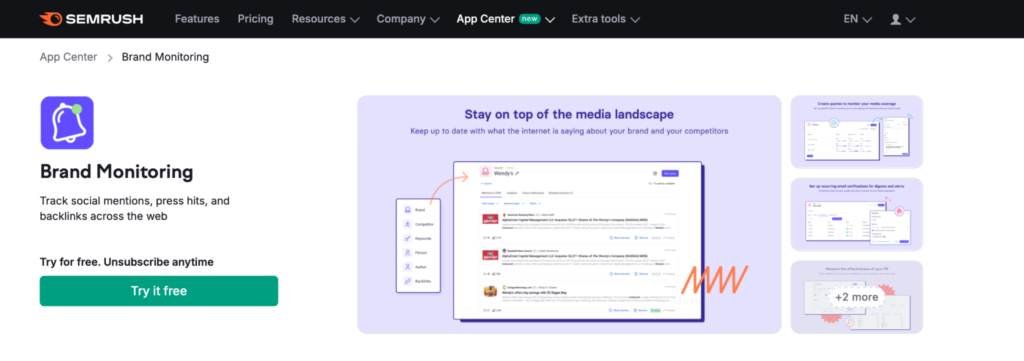
SEMrush is primarily a digital marketing toolset, but it also offers features that can help you track brand mentions. Here’s how SEMrush assists in this regard:
- Brand monitoring: SEMrush’s brand monitoring tool allows you to track mentions of your brand across various online sources. This includes news websites, blogs, social media platforms, and forums.
- Competitive analysis: SEMrush’s competitive analysis tools can help you identify websites that are mentioning your competitors but not your brand. This provides potential opportunities for outreach and improving your online visibility.
- Backlink analysis: While not as comprehensive as dedicated backlink tools like Ahrefs, SEMrush can still provide some insights into backlinks to your website, which can indirectly help you track brand mentions.
- Social media tracking: SEMrush offers basic social media tracking capabilities, allowing you to monitor mentions of your brand on platforms like Facebook, Twitter, and Instagram.
By leveraging the features offered by these tools, you can effectively track brand mentions, understand customer sentiment, identify opportunities for engagement, and improve your overall brand reputation.
How To Turn Brand Mentions Into Backlinks
After spotting brand mentions with tools like Google Alerts, SEMrush, or Ahrefs, the next step is turning those mentions into valuable backlinks. This means reaching out to the site owners or content creators who’ve mentioned your brand and asking them to add a link to your website. To do this successfully, your outreach should be thoughtful, respectful, and personalized, making it clear how adding a backlink benefits both parties.
In this section, we’ll dive into how to assess the quality of mentions, build a smart outreach strategy, and create pitches that boost your chances of getting those backlinks.
Evaluate the Source and Context of Mentions
Not every brand mention is worth chasing for a backlink. Before reaching out, it’s important to evaluate the quality of the source and the context in which your brand is mentioned. This helps ensure your efforts are focused on securing backlinks that truly benefit your SEO.
Assessing Mention Quality:
Start by looking at the website where your brand is mentioned. Consider the site’s domain authority, relevance to your industry, and content quality. High-authority sites in your niche are ideal for outreach, as backlinks from these can significantly boost your search engine rankings.
For example, a mention on a respected industry blog with well-researched content is far more valuable than one on a low-traffic personal blog. Tools like Ahrefs or SEMrush can help you gauge a website’s domain authority, guiding you to prioritize mentions with the most SEO value.
Contextual Relevance:
Also, consider how your brand is mentioned. Does it fit naturally within the content, and would a link to your site enhance the reader’s experience? Mentions in positive reviews or informative articles are strong candidates for a backlink request, as they add value to the content.
For instance, if your brand is featured in a list of recommended products, linking to your product page would make it easy for readers to learn more or make a purchase. On the other hand, if the mention is brief and lacks detail, it might be harder to justify adding a link.
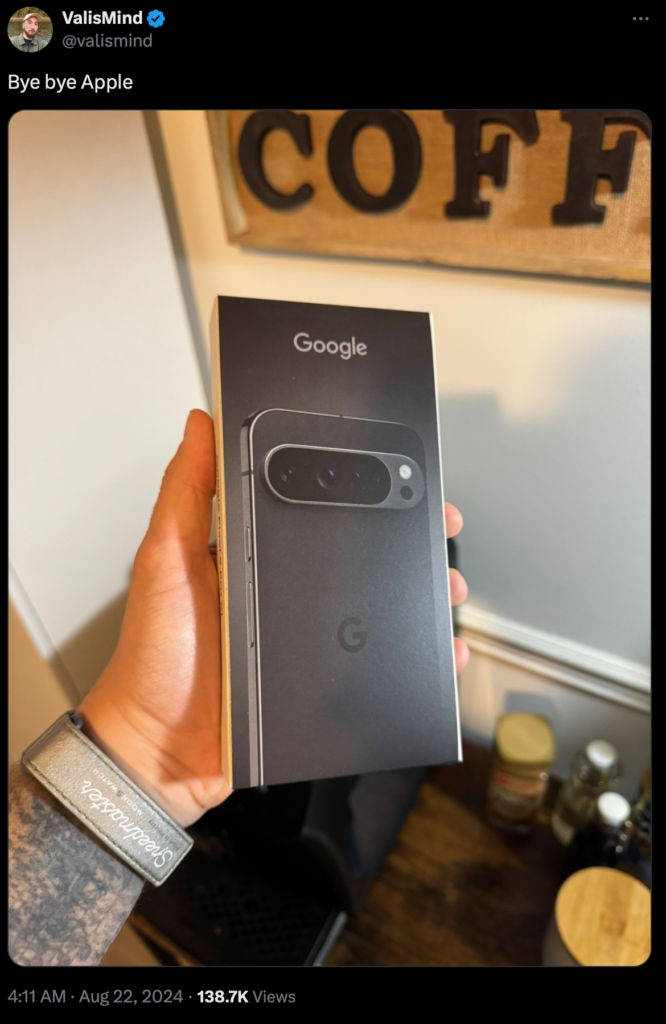
Outreach Strategy
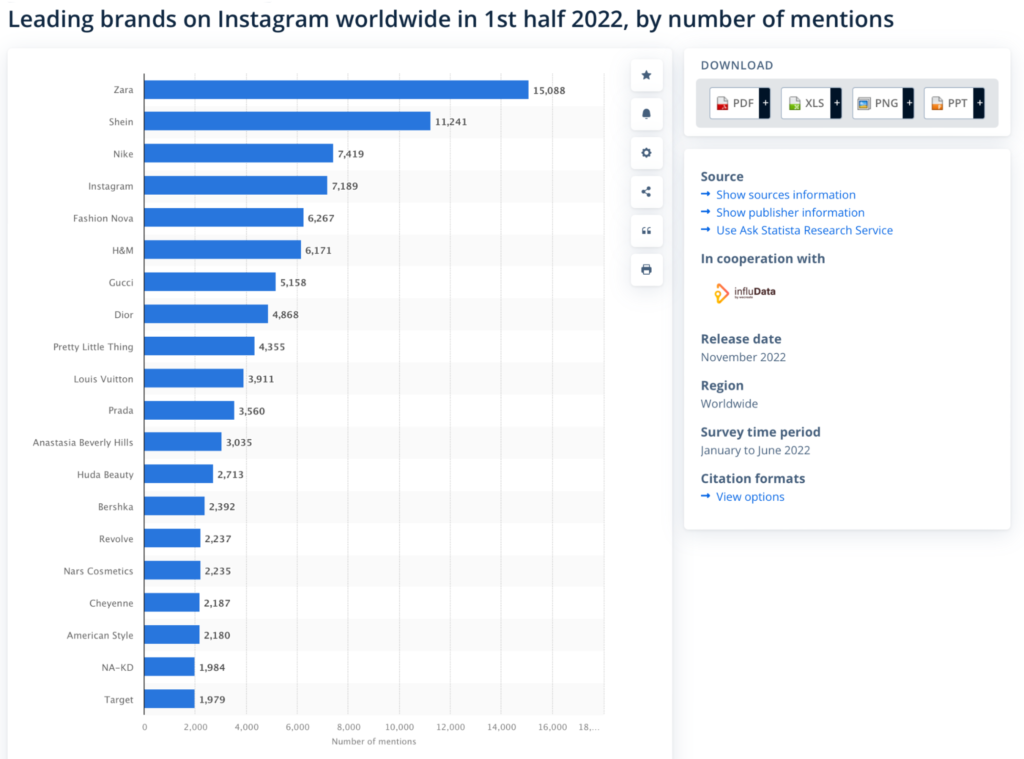
In 2022, several brands were mentioned on social media platform Instagram. If you see the numbers, you’ll find that it’s nearly impossible to reach out to every place and platform to check the mentions and turn them into backlinks.
What you should do instead is have an approach that is targeted, personalized, and mindful of the site owner’s time and content.
Start with a Plan:
Focus first on the mentions that matter most—those from high-quality, relevant sites. Prioritize these top-tier opportunities in your outreach, then work your way down.
Personalization is Key:
Avoid sending generic emails that feel like templates. Instead, personalize each message by addressing the recipient by name and mentioning what you liked about their content. Explain how linking to your site could add value for their readers.
Timing Matters:
Reach out soon after the mention is published, while it’s still fresh. But even if the content is older, don’t hesitate—frame your pitch as a way to refresh and improve their article.
This approach can make your outreach more effective and engaging.
Pitching Your Case
Creating an effective pitch is crucial for securing a backlink. Your pitch should clearly convey the advantages of adding your link, both for the site owner and their audience. A well-written request can significantly increase the chances of a positive outcome.
Crafting Your Request:
Keep your email short and straightforward. Start with a brief introduction and a personalized compliment on the content where your brand is mentioned. Then, make your request clear by asking to include a link to your website. Explain why this link would be valuable—whether it’s to provide readers with more information, boost the content’s credibility, or enhance user experience.
Avoid coming across as pushy or demanding. Instead, frame your request as a helpful suggestion that could add value to the content. Providing the specific URL you’d like linked will make it easier for the site owner to implement the change.
Emphasizing Mutual Benefits:
Highlight the shared benefits of adding your link. For example, the link could improve the reader’s experience by offering additional resources or product information. You might also mention how the link could enhance the article’s SEO by connecting it to a high-quality, authoritative source.
| 1. Pitch for an FMCG brandSubject: Idea for Your Article on Healthy EatingHi [Name],I enjoyed reading your recent article on [Blog Name] about healthy eating habits—your advice on mindful snacking really stood out! Since you mentioned [Your Brand], I thought it might be helpful for your readers if you linked to our website [insert URL here], where they can explore our range of nutritious snack options and learn more about the benefits of our ingredients.Adding this link could provide your audience with practical choices that align with the healthy lifestyle you’re advocating. I’d be glad to offer more details if you’re interested!Thanks for considering this, and keep up the great work!Best, [Your Name] [Your Position] |
| 2. Pitch for a Tech BrandSubject: Quick Tip for Your Guide on Productivity ToolsHi [Name],I found your recent guide on [Blog Name] about productivity tools for designers incredibly insightful—especially your breakdown of task management apps! Since you mentioned [Your Brand], I wanted to suggest including a link to our product page [insert URL here], where readers can find detailed information about our latest features designed to boost efficiency.This addition could make your guide an even more comprehensive resource for those looking to streamline their workflows. I’m here if you have any questions or need more info!Thanks so much for your time and consideration!Best regards, [Your Name] [Your Position] |
| 3. Pitch for an eCommerce websiteSubject: A Suggestion for Your Post on Home Decor TipsHi [Name],I recently came across your post on [Blog Name] about home decor tips, and I loved your creative ideas for small spaces! Since [Your Website] offers a curated selection of space-saving furniture, I thought it might be useful to your readers if you included a link to our site [insert URL here].This link could help your audience find exactly what they need to bring your tips to life. If you’d like more information or have any questions, I’m happy to assist!Thanks a lot for considering my suggestion!Warm regards, [Your Name] [Your Position] |
Are Brand Mentions Without Links Worthless?
You might be wondering, “Why do mentions matter if there’s no link?” Well, it turns out, even without a direct link, your brand’s mentions can be a powerful signal to search engines and are part of off-page SEO.
The Search Engine Experts Agree
Top dogs at both Google and Bing have made it clear that unlinked brand mentions are a big deal. They’re like secret handshakes that search engines understand, recognizing them as a sign of authority. It’s almost like saying, “People are talking about this brand, so it must be important.”
Google’s Official Stance
Google’s Search Quality Rating Guidelines even mention that “outside, independent reputation information” can be more important than what a company says about itself. Think of it like asking your friends for their honest opinion instead of just listening to the company’s sales pitch.
Implied Links: The Silent Connection
There’s also something called “implied links.” It’s like when someone recommends a great restaurant without giving you the address. Even though they didn’t link directly, you know it’s a good place to check out. Search engines can pick up on these implied links too, giving them the same weight as a regular link.
The Evidence
So, why are we so sure that search engines use unlinked mentions for ranking?
- The Experts Have Spoken: Google’s Gary Illyes and Bing’s Duane Forrester have both confirmed that unlinked mentions are a valuable signal.
- Google’s Patents: Google’s own patents talk about “implied links” as a ranking factor.
- Search Quality Guidelines: Google’s guidelines emphasize the importance of external reputation.
- Fighting Bad Actors: Unlinked mentions can help Google distinguish between good and bad brands.
In short, unlinked brand mentions are a powerful tool in your SEO arsenal. So, keep an eye on those conversations and let search engines know that your brand is the talk of the town.
Conclusion
While backlinks remain a critical component of SEO, brand mentions without links should not be dismissed as worthless.
Brand mentions work more like an online word-of-mouth. Even without direct links, they can boost your website’s authority and visibility. These mentions contribute to brand recognition, trust, and the broader perception of your brand’s authority online. They can lay the foundation for future link-building opportunities and support your long-term SEO strategy by enhancing your brand’s visibility and reputation.
Found this blog insightful? Keep watching this space for more relevant posts.



